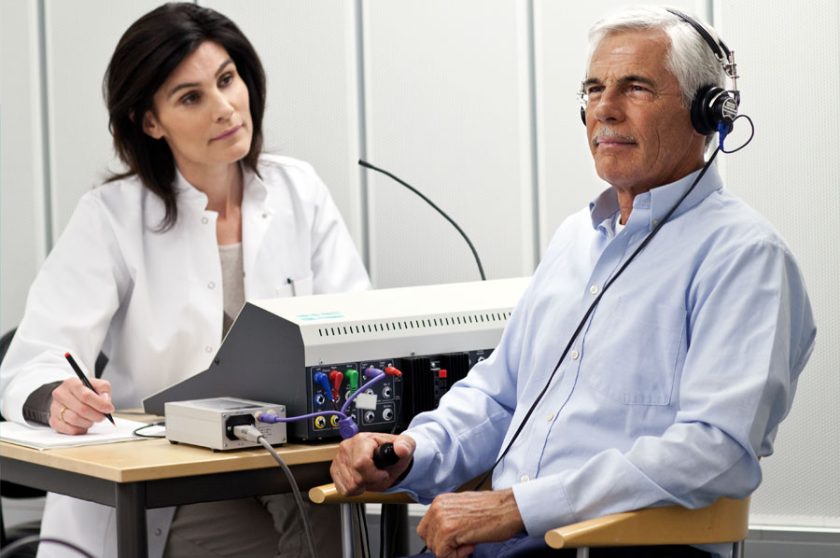When visiting a hearing clinic for the first time, it’s important for you to gather as much information as possible from the experts to address your overall concerns and make informed decisions. Of course, your ears are important, and you cannot take a chance with them. millions of people around the world experience hearing issues. Come on, if you have healthy ears, you should feel privileged. And if you have any doubts about the health of your ears, make sure that you visit a professional immediately.
Remember that visiting an ear doctor, also known as an otolaryngologist or an ear, nose, and throat (ENT) specialist, for the first time can be both thrilling and nerve-wracking. Therefore, no matter whether you are looking for treatment for a particular ear-related problem or simply going for a routine check-up, it’s critical that you stay well-prepared and informed. To ensure a smooth and even productive visit, here are several things you have in mind when visiting the expert for the first time:
Research and Choose a Trustworthy Ear Doctor:
Before scheduling your appointment, take the time to research and then choose a reputable ear doctor in your area. Seek recommendations from your primary care physician, even your friends or family members who have had positive or good experiences. Consider factors such as their overall qualifications, expertise, and patient reviews. A skilled , trustworthy, and experienced ear doctor can provide quality care and the right diagnoses. You can be sure that you are in the safe hands for your ear needs.
Prepare a proper List of Questions
Yes, it is essential that you do create a good list of questions you may like to ask the ear doctor during your appointment. This is going to help ensure that all your concerns are addressed and that you leave the appointment with a proper and clear understanding of your condition and recommended treatment. Some potential questions can sound like this:
– What might be causing my symptoms?
– Do I need any tests or even diagnostic procedures?
– What kind of treatment options are available for my ear condition?
– What are the possible risks and benefits of every treatment option?
– How long will it take to recuperate from the recommended treatment?
– Are there any lifestyle changes or preventive measures I should consider?
– What can I do to enhance my ear health?
This way, you can be sure that you have clarity about the things that you may have in your mind. The more you ask, the better you can know about your ears and possible treatments.
Review Your Signs and Medical History
Make sure that to make the most of your first visit; you do review and organize your symptoms and medical history. Write down any ear-related issues you’ve been experiencing, including pain, even hearing loss, tinnitus (ringing in your ears), dizziness, or even ear infections. Include details like the duration, frequency, and severity of symptoms. Additionally, it is also helpful if you do compile a comprehensive medical history, including any past surgeries, allergies, overall medications, or even chronic conditions.
Take relevant Documents and Test Results:
In case you have previously undergone any ear-related tests, such as audiograms or even imaging scans, bring the results and any other relevant medical documents with you to the appointment. These records can definitely provide you with valuable information to your ear doctor and help in the right diagnosis of your condition. Additionally, it is also essential that you do bring your insurance card, photo identification, and any sort of referral forms required by your insurance provider.
Arrive Early and Be ready for Administrative Tasks
Arriving early for your appointment enables you to complete any necessary paperwork and administrative tasks without even feeling rushed. You may require to fill out patient registration forms, provide insurance information, or even sign consent forms. Being prepared with such types of documents will accelerate the check-in process and ensure that your appointment begins on time.
Stay Honest and Be Open About Your Symptoms
When discussing your symptoms with the ear expert or doctor, be honest and provide as much detail as you probably can. This includes information about the duration, triggers, intensity, and any changes you may have noticed. Your doctor depends on accurate information to make an informed and proper diagnosis and recommend appropriate treatment options. Make sure that you do not hesitate to mention any concerns or even questions that you may have. Remember, the more you stay clear with your doctor, the more they can help you with your ear treatment and procedure.
Wear Comfortable outfit
During your visit, the ear doctor may require you to examine your ears or perform tests that demand you to lie down or tilt your head. To ensure your comfort, it will be better if you do wear loose-fitting and comfortable clothing that permits easy access to your ears and neck area. Avoid wearing any sort of excessive jewellery or accessories that may interfere with the ear examination. After all, you want to be in comfort when getting an evaluation.
Understand your Examination Process
During your first visit, the ear doctor is going to probably perform a detailed examination of your ears, nose, and throat. This may encompass visual inspection, use of specialized instruments such as an otoscope, and possibly additional tools that may be needed. once you know about these tools and devices, you can be more comfortable with your visit and treatment. there is nothing to be worried about as the professionals know that it is your first time and you are a little nervous. If you have any doubts about the tools used, don’t hesitate to ask them about it. for example, if you find any tool in their hand, you can ask them what it is for and more. Hence, you can be confident that you know what exactly they use for your ear examination.
Conclusion
To sum up, since you know much about what you should know and things you should be careful about when visiting the Hearing specialist for the first time, make sure that you use this acquired information for the best check-up experience.





